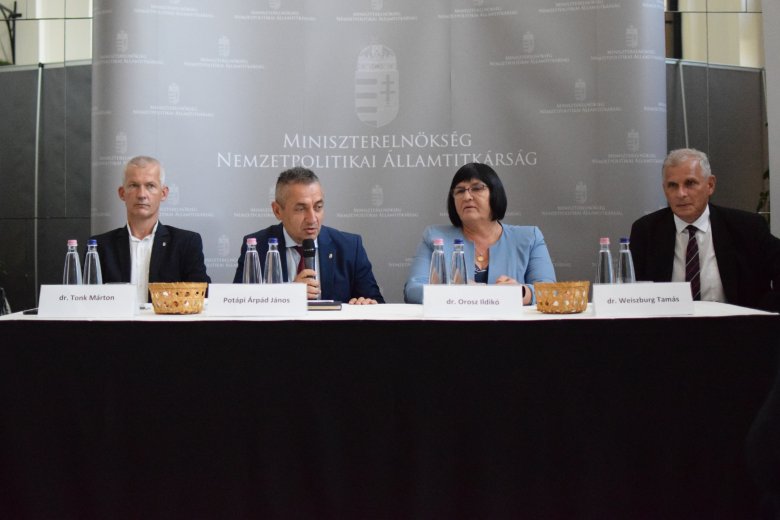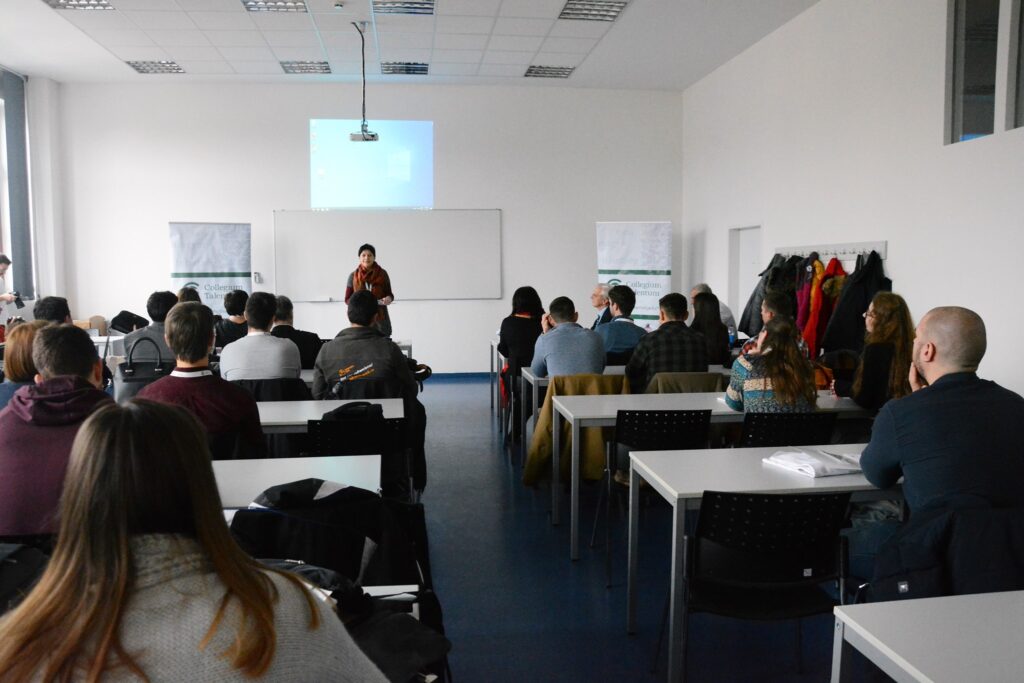The Collegium Talentum scholarship program, which aims to keep young Hungarian researchers in their homeland to train a new generation of outstanding professors and scientific intellectuals, will continue in the 2020/2021 scholar year. The program, supported by the Hungarian State Secretariat for National Policy, is the largest talent support network, covering the entire Carpathian Basin, the managers of the program stated at a press conference held in Budapest on Monday.
According to Márton Tonk, the Dean of Sapientia Hungarian University of Transylvania and professional director of the program, due to the efforts of the Hungarian Government, the higher education community in the Carpathian Basin has become stronger; furthermore, institutional and researcher relations have not been affected by the epidemic, but rather simply moved to the online world.
János Árpád Potápi, Secretary of State for National Policy, announced at the press conference that Collegium Talentum will continue in the new school year. According to the state secretary, the program aims to offer elite training to Hungarians living outside of Hungary to ensure an outstanding supply of teachers, scientists and intellectuals in these regions and to develop the network of scientists in the Carpathian Basin. As the state secretary said, the future may be influenced through students in higher education, as in 20-30 years, these students will be the leaders of the Carpathian Basin. Potápi also stressed that educational, cultural and political systems cannot be separated, and it is very important to look forward, to plan for at least the next 5-10 years, and not only think about today.

Approximately 80 Ph.D. and master students are admitted to the talent support program each year. Potápi said at the conference that the program was established in 2011 and has been managed since 2016 via a foundation by Sapientia Hungarian University of Transylvania and Ferenc Rákóczi II Transcarpathian Hungarian College of Higher Education. The amount of government funding has so far reached HUF 700 million (almost EUR 2 million). In the Carpathian Basin, 262,000 children and young people are enrolled in Hungarian educational institutions, of which approximately 15,000 are university students, the state secretary said.
Tonk said at the press conference that 146 students took part in this year’s admissions, most of them from Transylvania. In Transylvania, agriculture and technical studies were overrepresented, while in the Vojvodina or Vajdaság region in Serbia, teacher training was preferred, Tonk mentioned.

The professional director of the program told local news portal székelyhon.ro that Collegium Talentum is the largest and oldest talent support program. It is primarily for Ph.D. students, but in exceptional cases, talented master’s students may also benefit from the scholarship. As the dean explained, the aim of the program is to keep the young generation in their homeland so that they can support young researchers in those years when they are the most vulnerable financially and may choose to leave to live and work in Western countries. The program helps students until they get their doctoral degree or get employed, preferably at a research institute, Tonk said.
The professional director of the program also mentioned that another goal of the program is the development of the scientific-educational network. “The program seeks to bring scholars together so that they can experience the program as an academic network,” Tonk explained.
Approximately 80 students receive scholarships every year, and almost 50 of them are Transylvanians. According to Tonk, in the previous year, 70 percent of the scholars chose to stay in Romania and become teachers. The dean also added that staying in their homeland is an important criteria during the admission process: Every applicant has to present where they envision themselves in five years.
“We select the best students, and, obviously they are the most exposed to the global labor market,” Tonk explained, adding that inevitably some of the students have left their homeland and moved to foreign countries.
Title image: Márton Tonk (left) and János Árpád Potápi at the press conference. Photo: Hungarian State Secretariat for Nation Policy